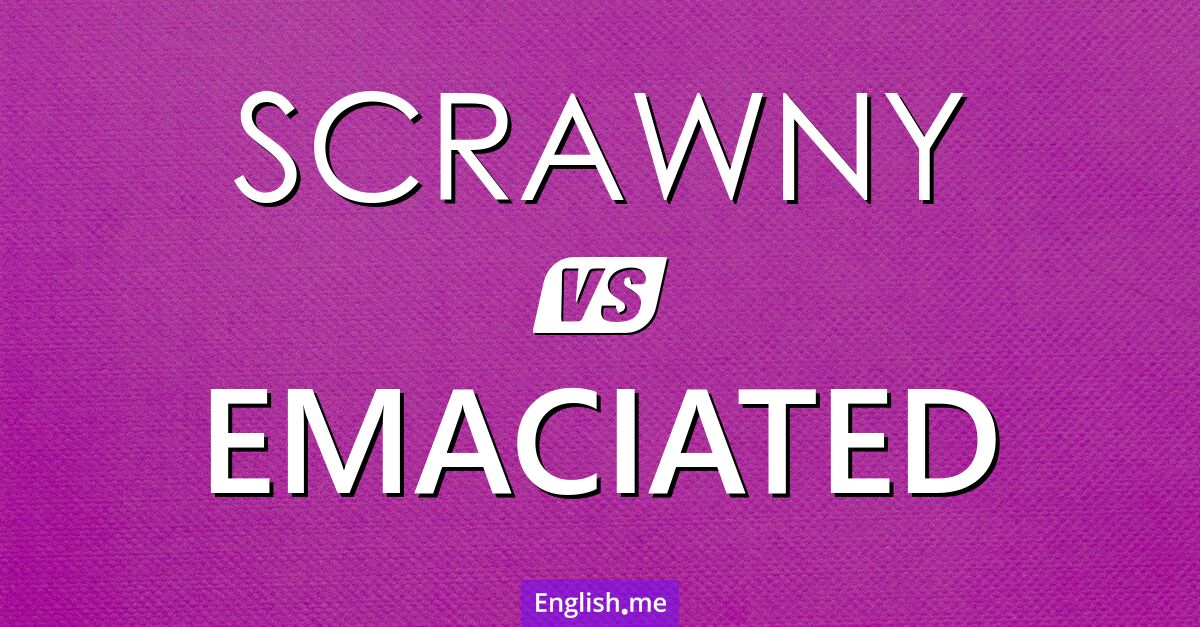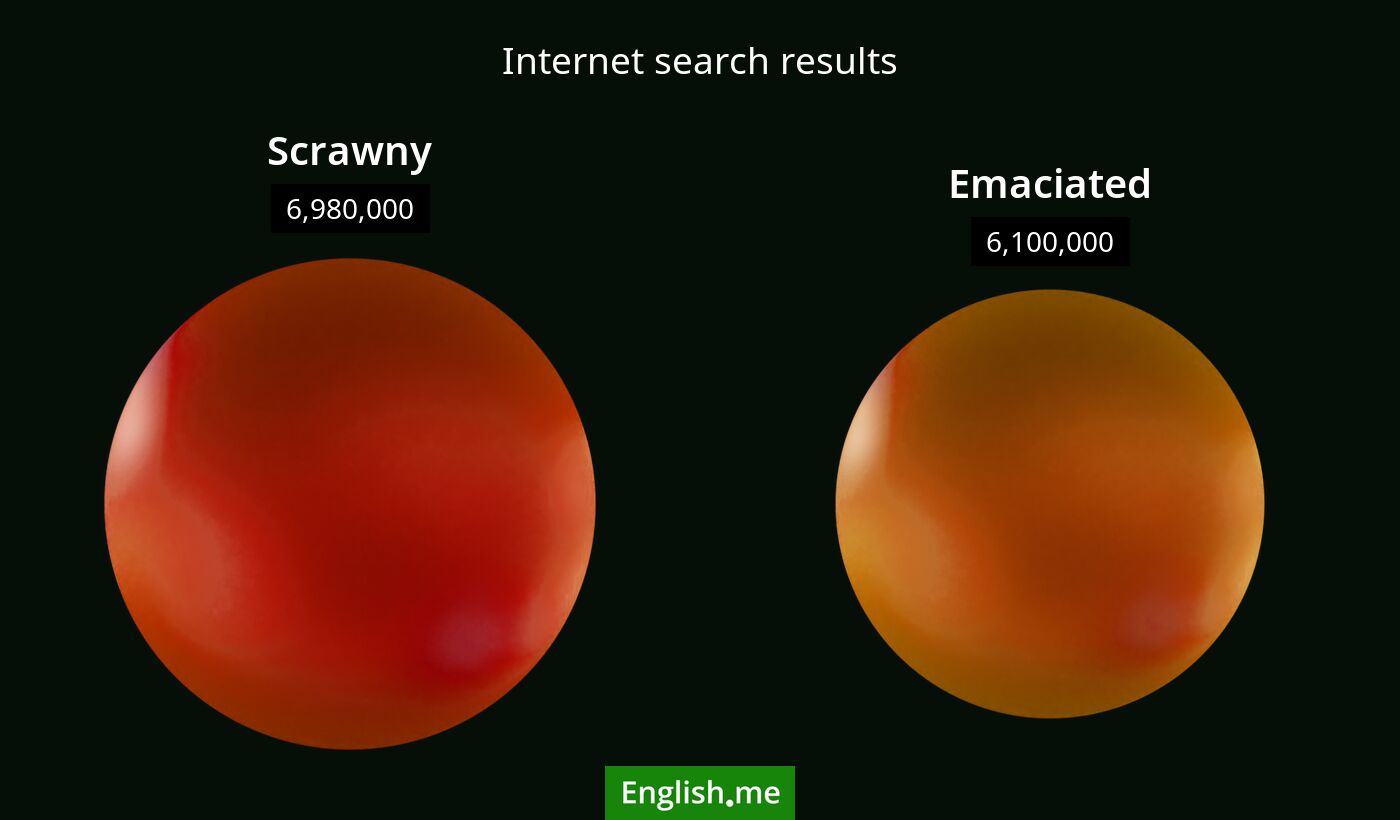"Scrawny" vs "emaciated": nuances in thinness
Reviewed and edited by  Lloyd Cooper 02/12/2024, 13:24
Lloyd Cooper 02/12/2024, 13:24
English.me team member

 What is similar?
What is similar?
Both "scrawny" and "emaciated" describe someone or something that is thin or underweight, implying a lack of physical bulk or muscle. Both terms can have negative connotations regarding physical appearance.
 What is different?
What is different?
"Scrawny" refers to being thin or bony, often used informally, and can describe someone who is thin but otherwise healthy. "Emaciated" describes extreme thinness due to severe malnutrition or illness; it suggests a serious medical condition. "Emaciated" is more severe in connotation than "scrawny". "Scrawny" can sometimes have a slightly playful or teasing tone, whereas "emaciated" is serious.
 Which one is more common?
Which one is more common?

 Examples of usage
Examples of usage
Scrawny- The scrawny cat slipped through the narrow opening in the fence.
- He was tall and scrawny, with long limbs and a youthful energy.
- Despite his scrawny appearance, he was surprisingly strong.
- The rescue team found an emaciated dog wandering the streets.
- She appeared emaciated after months of illness.
- The emaciated man was in urgent need of medical care.

 English
English español
español française
française italiano
italiano deutsche
deutsche 日本語
日本語 polski
polski česky
česky svenska
svenska Türkçe
Türkçe Nederlands
Nederlands